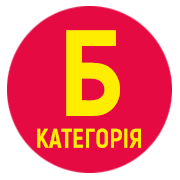MODERN APPROACHES TO INCLUSIVE EDUCATION IN UKRAINE AND ABROAD
DOI:
https://doi.org/10.32782/olimpspu/2024.2.14Keywords:
inclusive education, individualized approach, adaptive technologies, professional training of teachers, differentiated education, international standards, pedagogical methods, social supportAbstract
The article examines modern approaches to inclusive education in Ukraine and abroad, analyzing key trends and prospects for its development. The main focus is on an individualized approach to education that considers the needs of each student, the development of methods and technologies, and compliance with international standards and innovations. The legislative framework, pedagogical strategies, material and technical support, and teacher preparation for working in inclusive environments are described. The legislative foundations of inclusive education in Ukraine provide the legal basis for creating favorable conditions for the education of children with special needs. The article analyzes the main regulatory acts governing the implementation of inclusive education and compares them with international documents, such as the UN Convention on the Rights of Persons with Disabilities. This allows for determining the level of compliance of Ukrainian legislation with international standards and identifying areas for improvement. Pedagogical strategies used in inclusive education are based on the principles of differentiation and individualization of learning. The article examines modern methods that enable effective education for children with various educational needs. Special attention is given to the use of distance learning technologies, adaptive learning materials, and innovative pedagogical approaches that foster the development of an inclusive environment. Material and technical support is a crucial aspect of implementing inclusive education. The article analyzes the state of the material and technical base of Ukrainian schools that implement inclusive education and compares it with international experience. Key problems are identified, such as insufficient funding, lack of specialized equipment, and educational materials, and solutions are proposed. Teacher preparation for working in inclusive conditions is a key factor in the successful implementation of inclusive education. The article describes teacher training programs focused on developing competencies for working with children with special educational needs. It also examines the experience of foreign countries in preparing teachers for working in inclusive environments, which can be useful for improving the Ukrainian education system. Key aspects and prospects for the development of inclusive education in Ukraine are identified. Among them are the need to improve the legislative framework, implement modern pedagogical technologies, ensure adequate material and technical support, and prepare qualified personnel. Special attention is given to creating an inclusive environment that promotes the comprehensive development of each child, regardless of their characteristics and needs.
References
Андрійчук Н. М. Моделі спеціальної та інклюзивної освіти в сучасних дослідженнях американських і британських учених. Наукові записки Тернопільського національного педагогічного університету імені Володимира Гнатюка. Серія : Педагогіка. 2016. № 3. С. 155–161.
Антощак О. Інклюзивна освіта: шляхи від теорії до практики. Директор школи. 2016. № 9/10. С. 72−78.
Інклюзивне навчання: основні принципи та дієві технології : кол. монографія / О. І. Баланська та ін.; відп. ред. Г. В. Давиденко. Вінниця : ТВОРИ, 2018. 216 с.
Кормілець С.В. Настанова з фізичної підготовки в кадетському корпусі та військових ліцеях. Методичний посібник для вчителів військових ліцеїв. / Баженков Є.В., Свідлов Ю.І., Бугрій В.С., Кормілець С.В./ За заг. ред. С.В. Кормільця. Суми: 2018.
Кутек Т. Особливості освітнього процесу майбутніх фахівців галузі «Фізична культура і спорт». URL : http://eprints.zu.edu.ua/7618/1/ Львів%20нова.pdf. (дата звернення 12.01.2020).







